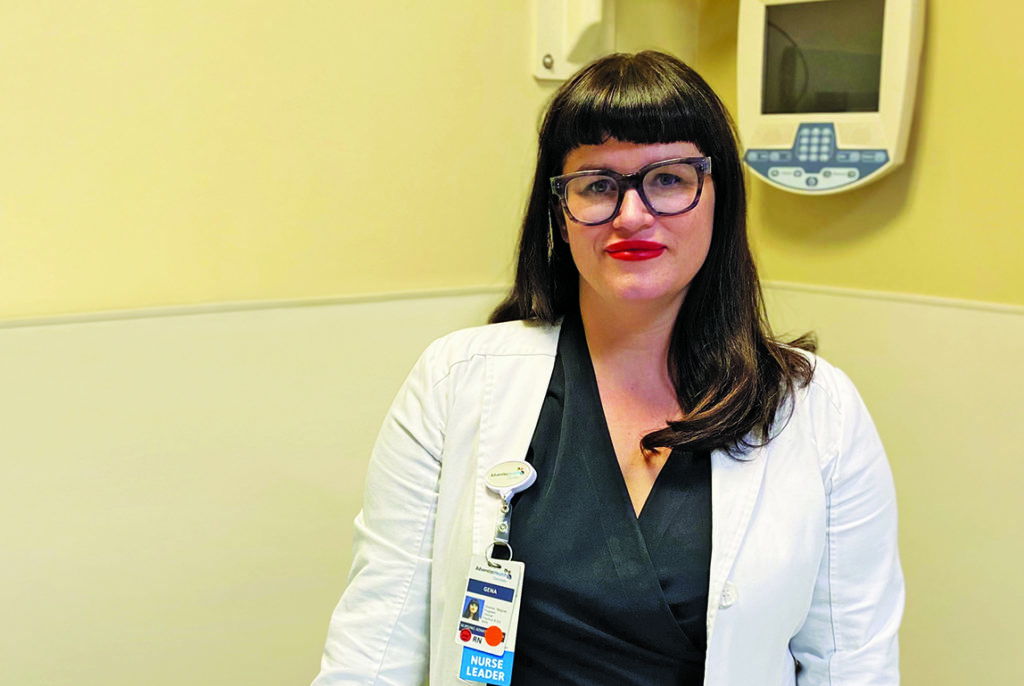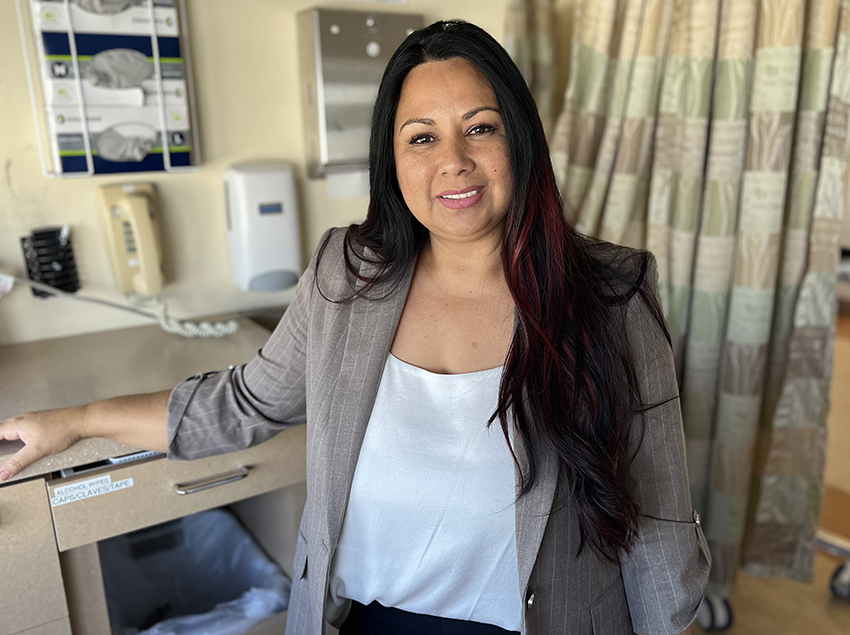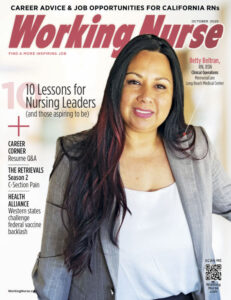My Specialty
Magnet Program Director, Gena Welch, Adventist Health Glendale
Providing leadership during the pandemic and beyond

Gena Welch, RN, BSN, PHN, CPN, CEN
Director of Magnet Program / Director of Clinical Practice & Education
Adventist Health Glendale
Your childhood had a big impact on your choice to become a nurse. Tell us about that.
I grew up on a farm in very rural Wisconsin. I had eight brothers and sisters — we were very impoverished and I don’t remember seeing a doctor until I was 12. Several of my aunts were nurses, and they were the ones who were called when someone was sick. I admired their knowledge and was inspired by their ability to help.
My brother was shot in a hunting accident. He lived, but he was badly injured. He was taken to a nearby house, where they incorrectly applied a tourniquet to his arm, causing further harm. When I heard the adults talking about it, I wanted to understand what should have been done instead.
Describe your nursing career trajectory.
I’ve been a nurse for 15 years. I began in pediatrics — general pediatrics, hematology-oncology, and med-surg. I then moved to the emergency department, where I learned what I had always wanted to learn: how to help in the most dire of situations.
After I had my son, I wanted to work closer to my home. My husband works in the professional skateboarding world and has had to travel a lot over the years, so I chose to take a position at the nearby Adventist hospital so I could accommodate his travel schedule.
I found that this community hospital truly recognizes talent and works with their staff to develop them professionally. My director in the ED at Adventist Health Glendale helped me identify and develop my abilities, so when advancement opportunities came along, I was ready.
What’s it like to be the director of the Magnet program?
Adventist Glendale is currently on our initial journey to Magnet designation. Our gap analysis was done in late 2019. At that time, we said, “We’re ready for this,” so we set an ambitious timeline and decided to move forward. I transitioned out of a previous role into being a first-time director. For better or worse, just after I accepted the position, the pandemic hit us hard. The Glendale area was one of the regional epicenters.
As the pandemic took off all around us, we assessed our PPE situation, performed fit testing and adapted to rapid changes as we learned more about caring for patients with COVID-19. I immediately began to develop a team nursing model for the hospital, in order to stretch our ICU capacity in anticipation of the coming surge.







